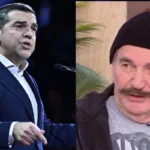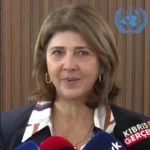The informal EU Summit in Copenhagen, hosted by Danish Prime Minister Mette Frederiksen and chaired by European Council President António Costa, focused on strengthening European defense and supporting Ukraine in the face of ongoing Russian provocations. European leaders discussed the need for increased surveillance, a unified strategy, and technological tools to counter drone overflights and other hybrid threats.
Greek Prime Minister Kyriakos Mitsotakis stressed that Europe’s protection should not be limited to the eastern borders but must also extend to the south, reinforcing security across the Mediterranean and maritime passages. He highlighted Greece’s commitment to continue allocating over 3% of GDP to defense, supporting European joint defense projects such as missile defense and the “Drone Wall.”
The Summit also addressed the implementation of the SAFE program, with a budget of €150 billion, aiming to enhance interoperability of member states’ military forces, as well as the creation of a pan-European anti-drone shield based on Ukraine’s experience. António Costa described these plans as “a step forward in strengthening the EU’s eastern flank,” while Ursula von der Leyen emphasized that the nature of war has changed and Ukraine’s expertise is a critical guide for Europe.
The Summit concluded with preliminary agreements, and the full roadmap for 2030 readiness is expected to be presented within two weeks, with final decisions from the European Council at the end of October.
From the Greek perspective, as Mitsotakis highlighted, the focus is not only on the eastern flank but on strengthening overall European security, ensuring protection for Europe’s southern borders against any potential future threat.












